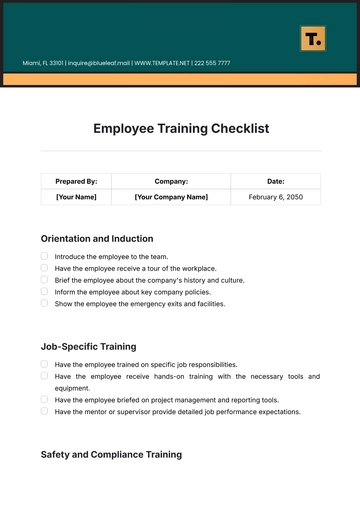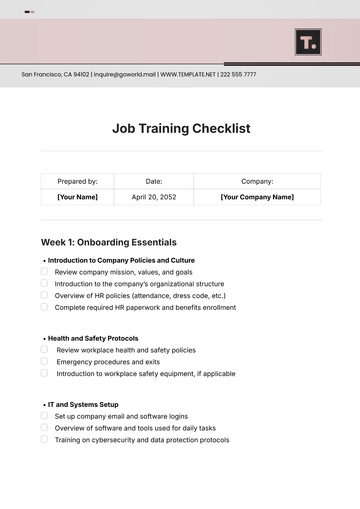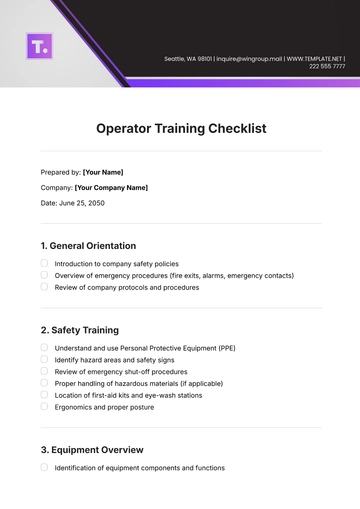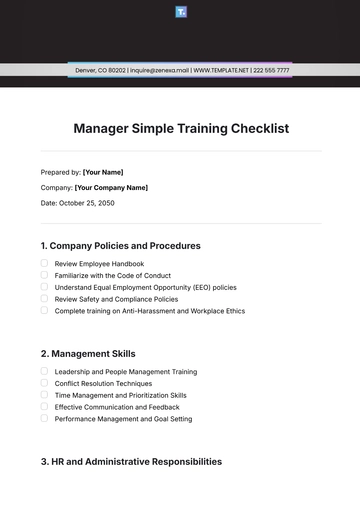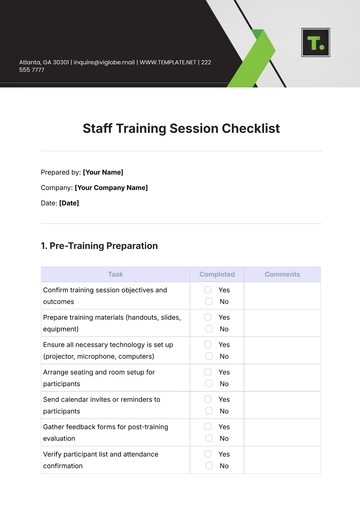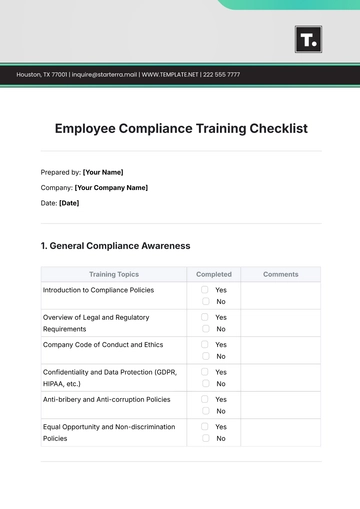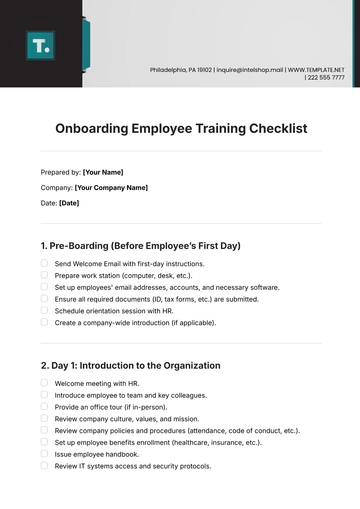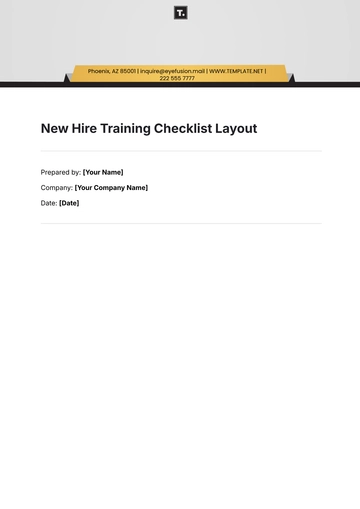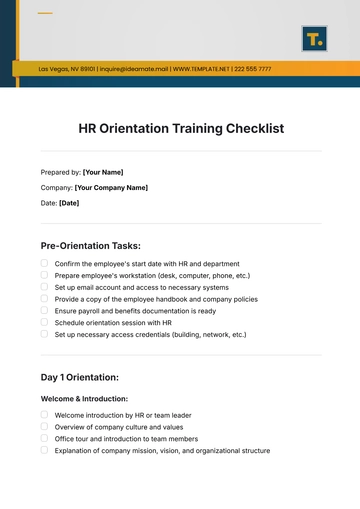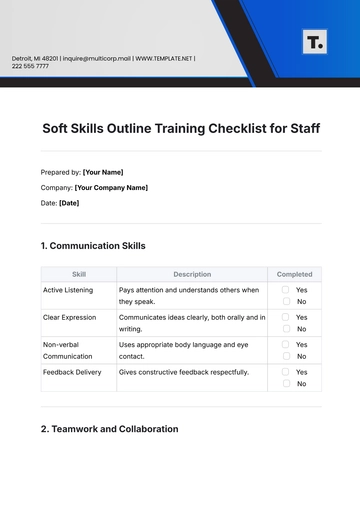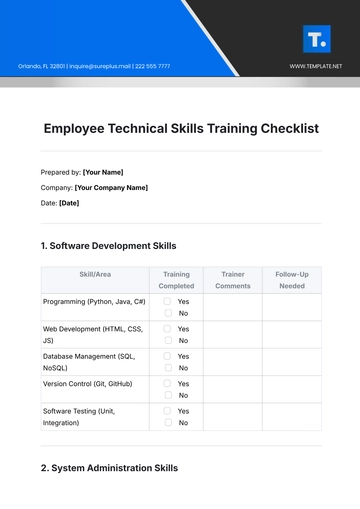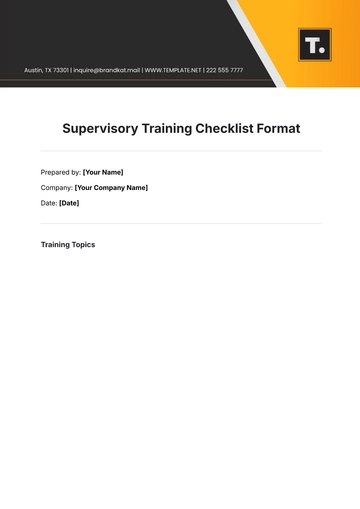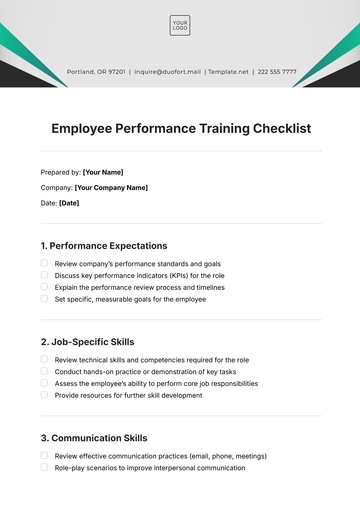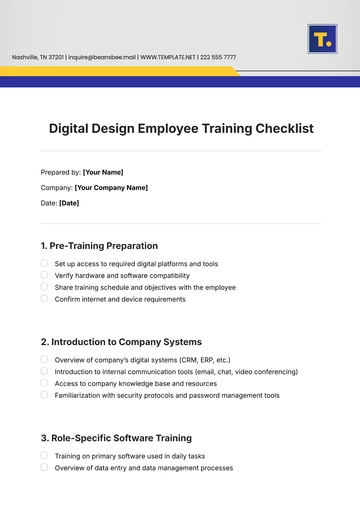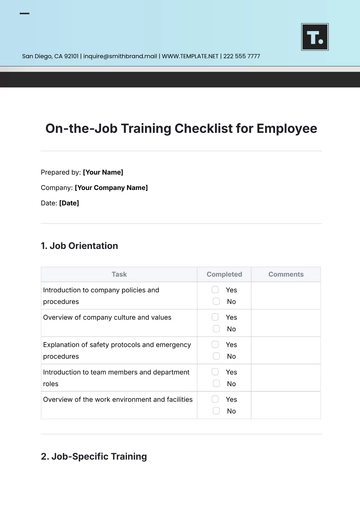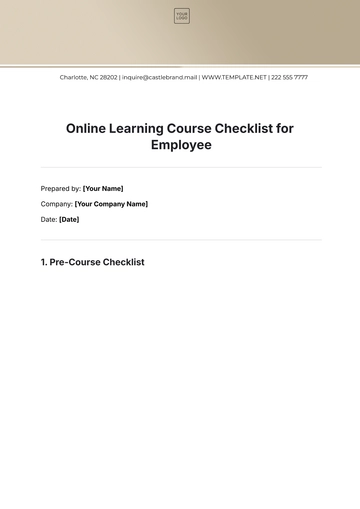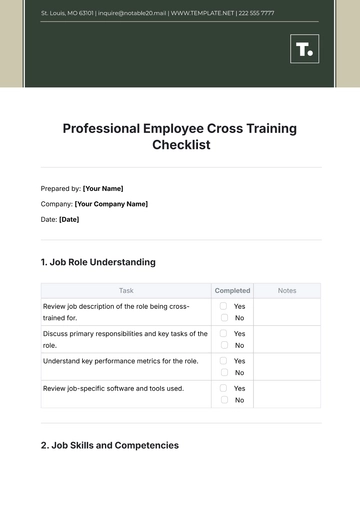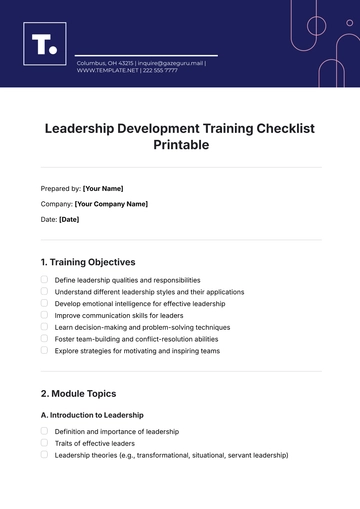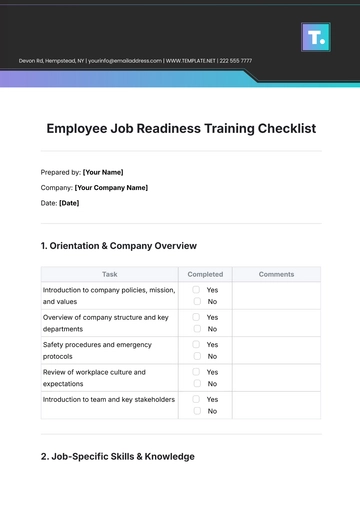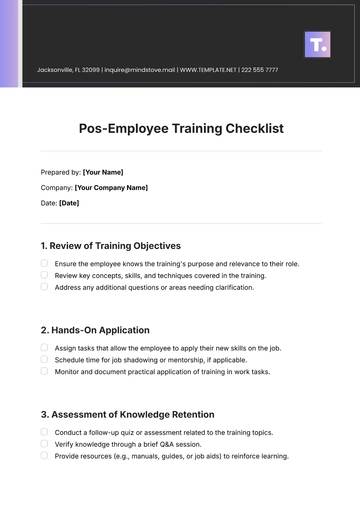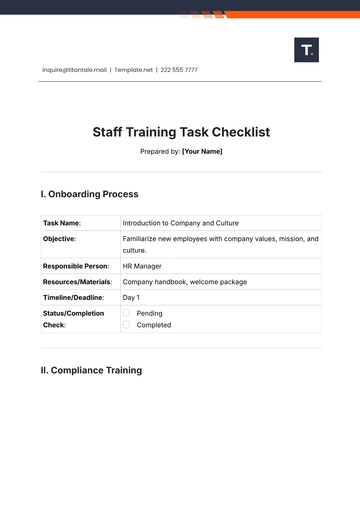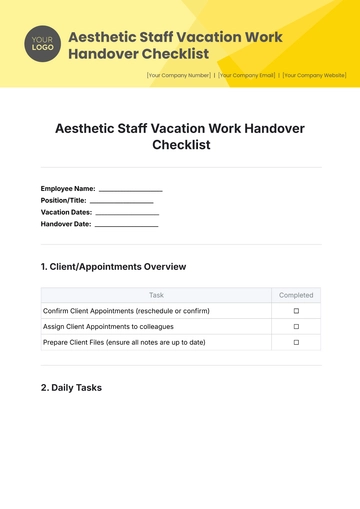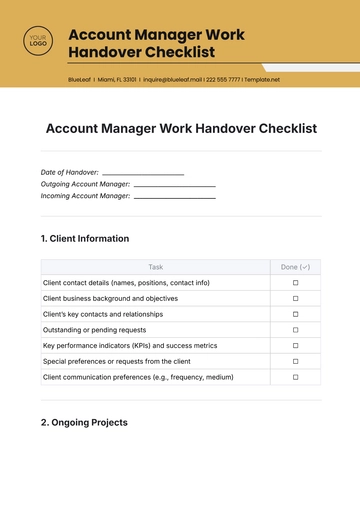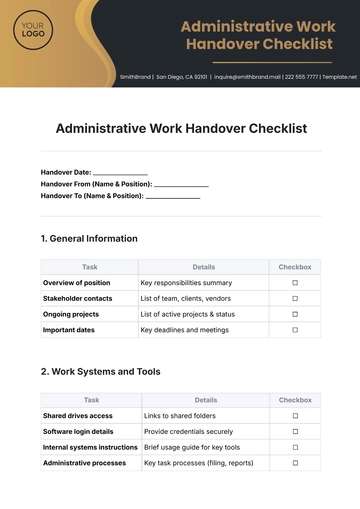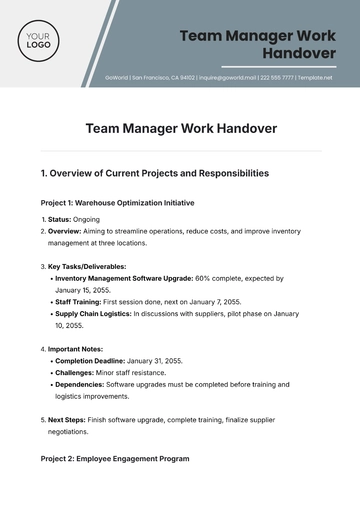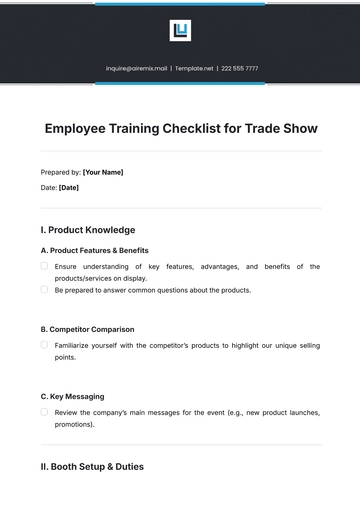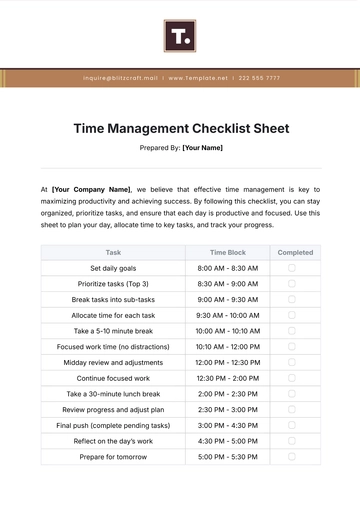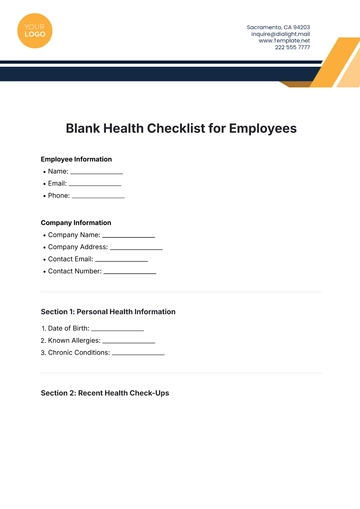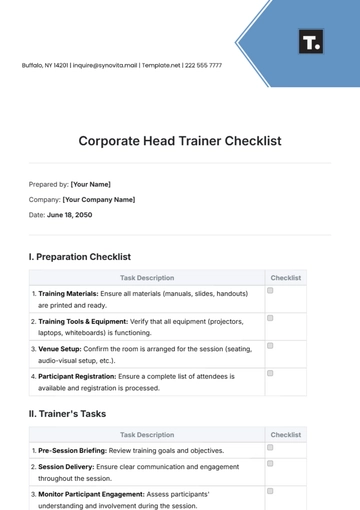Free Employee Training Checklist for Trade Show
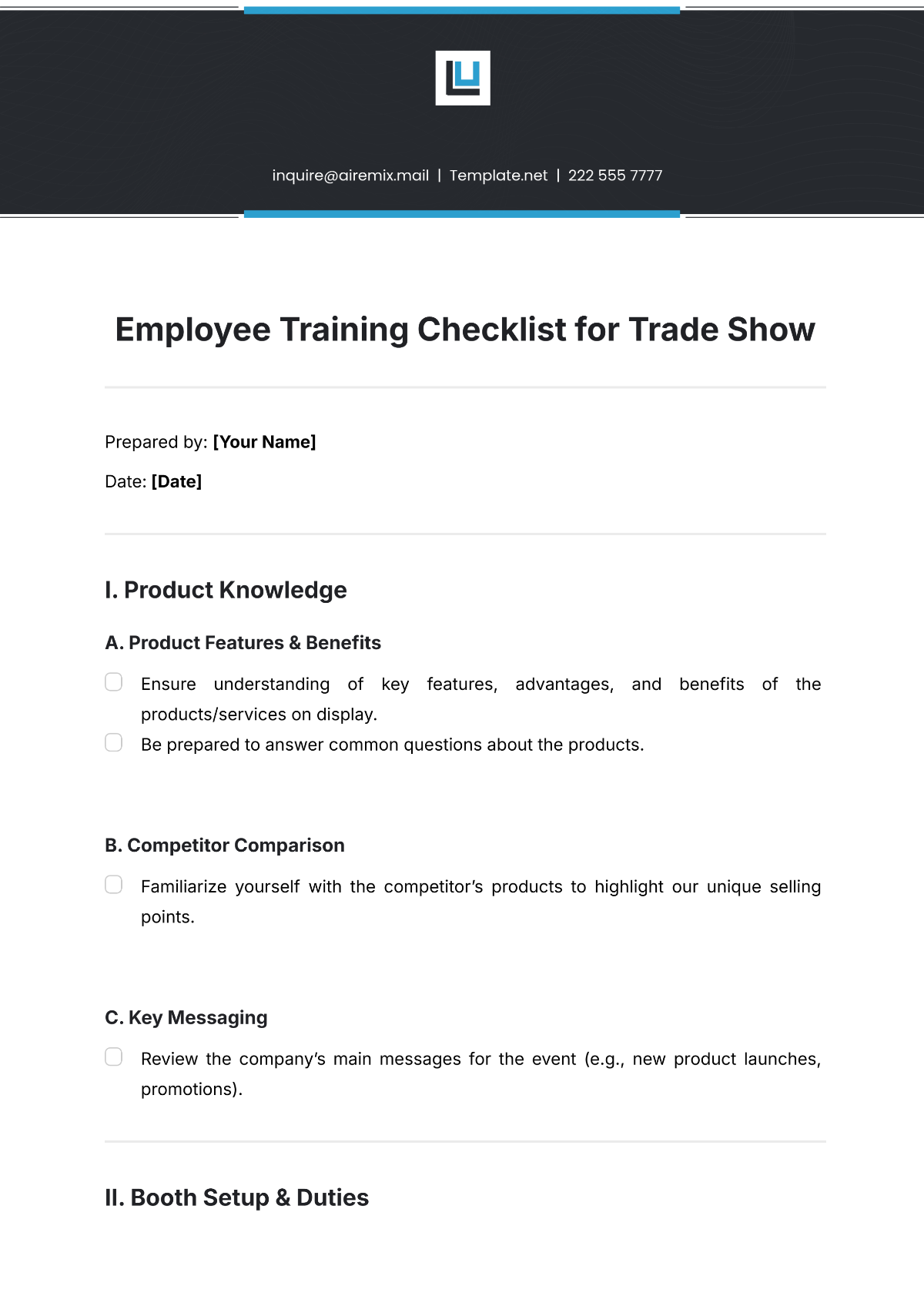
Prepared by: [Your Name]
Date: [Date]
I. Product Knowledge
A. Product Features & Benefits
Ensure understanding of key features, advantages, and benefits of the products/services on display.
Be prepared to answer common questions about the products.
B. Competitor Comparison
Familiarize yourself with the competitor’s products to highlight our unique selling points.
C. Key Messaging
Review the company’s main messages for the event (e.g., new product launches, promotions).
II. Booth Setup & Duties
A. Booth Display Setup
Know the layout and design of the booth.
Ensure all materials (brochures, flyers, business cards, etc.) are in place.
B. Equipment Check
Test all devices, including screens, projectors, or demos, to ensure functionality.
C. Booth Staffing Rotations
Confirm your shift and assigned tasks, including greeting visitors and managing the booth.
III. Sales Pitch & Communication
A. Elevator Pitch
Practice delivering a concise and compelling elevator pitch about the company and its products.
B. Lead Qualification
Learn how to qualify leads (e.g., identifying potential customers, and gathering contact information).
C. Handling Objections
Review common objections and prepare responses that turn them into opportunities.
IV. Event Logistics
A. Event Schedule
Know the start and end times, along with key milestones (e.g., sessions, speaker presentations).
B. Travel & Accommodation
Confirm travel arrangements, hotel accommodations, and transportation to the venue.
C. Emergency Contact Information
Have a list of important contacts in case of any emergencies or issues at the event.
V. Customer Interaction
A. Engaging with Visitors
Practice techniques for initiating conversations and engaging attendees effectively.
B. Collecting Leads
Use the proper tools (e.g., lead forms, and QR codes) to collect visitor information.
C. Handling Difficult Situations
Be prepared to manage conflicts or difficult visitors professionally.
VI. Branding & Company Representation
A. Brand Guidelines
Review the company’s visual and verbal brand guidelines to ensure consistency in all communications.
B. Dress Code
Follow the event-specific dress code that aligns with the company’s professional image.
C. Company Values & Mission
Be able to confidently speak about the company’s values and mission statement.
VII. Safety & Compliance
A. Health and Safety Protocols
Familiarize yourself with event-specific health and safety rules (e.g., COVID-19 protocols).
B. Booth Safety
Follow guidelines for setting up, operating, and dismantling the booth safely.
C. Legal and Compliance Requirements
Ensure understanding of any legal requirements, such as intellectual property or promotional regulations.
- 100% Customizable, free editor
- Access 1 Million+ Templates, photo’s & graphics
- Download or share as a template
- Click and replace photos, graphics, text, backgrounds
- Resize, crop, AI write & more
- Access advanced editor
Prepare your staff for success with the Employee Training Checklist for Trade Show Template available at Template.net. This editable and customizable template ensures your team is well-prepared with the knowledge they need for a successful trade show experience. From product knowledge to customer interaction, this checklist covers all essential training components. Personalize it with ease using our AI Editor Tool for an efficient and tailored training plan.
You may also like
- Cleaning Checklist
- Daily Checklist
- Travel Checklist
- Self Care Checklist
- Risk Assessment Checklist
- Onboarding Checklist
- Quality Checklist
- Compliance Checklist
- Audit Checklist
- Registry Checklist
- HR Checklist
- Restaurant Checklist
- Checklist Layout
- Creative Checklist
- Sales Checklist
- Construction Checklist
- Task Checklist
- Professional Checklist
- Hotel Checklist
- Employee Checklist
- Moving Checklist
- Marketing Checklist
- Accounting Checklist
- Camping Checklist
- Packing Checklist
- Real Estate Checklist
- Cleaning Checklist Service
- New Employee Checklist
- Food Checklist
- Home Inspection Checklist
- Advertising Checklist
- Event Checklist
- SEO Checklist
- Assessment Checklist
- Inspection Checklist
- Baby Registry Checklist
- Induction Checklist
- Employee Training Checklist
- Medical Checklist
- Safety Checklist
- Site Checklist
- Job Checklist
- Service Checklist
- Nanny Checklist
- Building Checklist
- Work Checklist
- Office Checklist
- Training Checklist
- Website Checklist
- IT and Software Checklist
- Performance Checklist
- Project Checklist
- Startup Checklist
- Education Checklist
- Home Checklist
- School Checklist
- Maintenance Checklist
- Planning Checklist
- Manager Checklist
- Wedding Checklist
- Vehicle Checklist
- Travel Agency Checklist
- Vehicle Inspection Checklist
- Interior Design Checklist
- Backpacking Checklist
- Business Checklist
- Legal Checklist
- Nursing Home Checklist
- Weekly Checklist
- Recruitment Checklist
- Salon Checklist
- Baby Checklist
- Equipment Checklist
- Trade Show Checklist
- Party Checklist
- Hospital Bag Checklist
- Evaluation Checklist
- Agency Checklist
- First Apartment Checklist
- Hiring Checklist
- Opening Checklist
- Small Business Checklist
- Rental Checklist
- College Dorm Checklist
- New Puppy Checklist
- University Checklist
- Building Maintenance Checklist
- Work From Home Checklist
- Student Checklist
- Application Checklist
